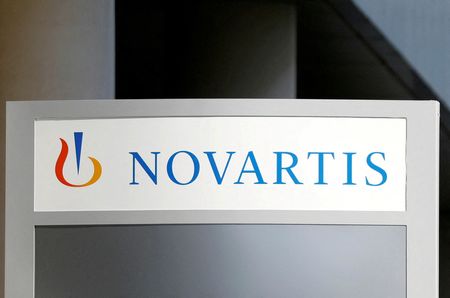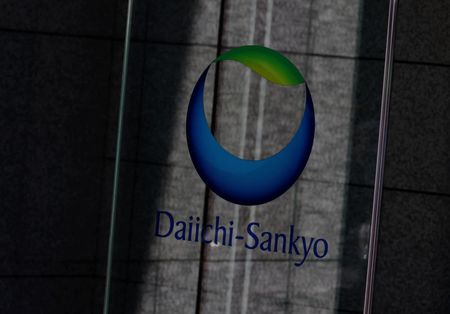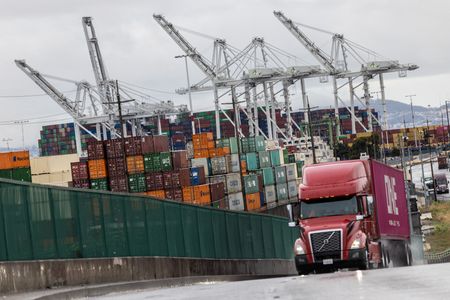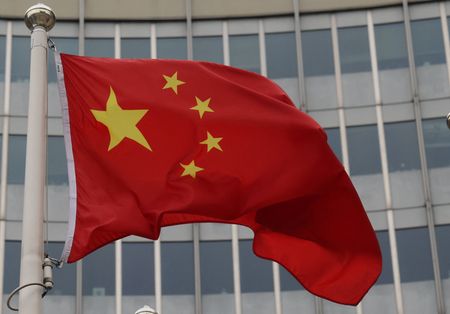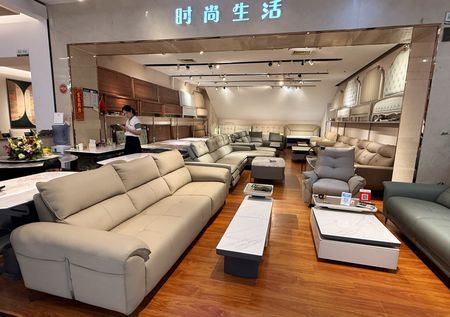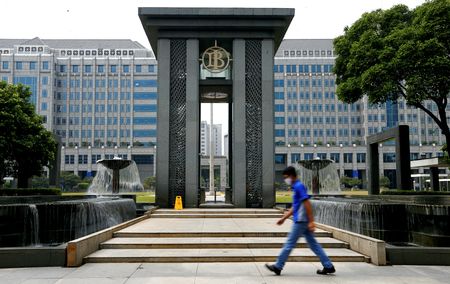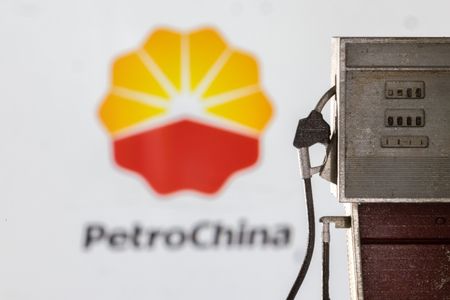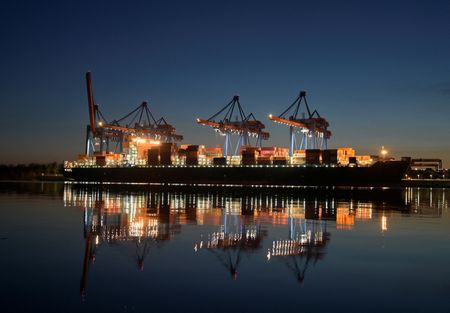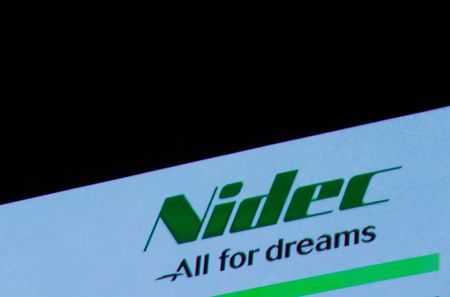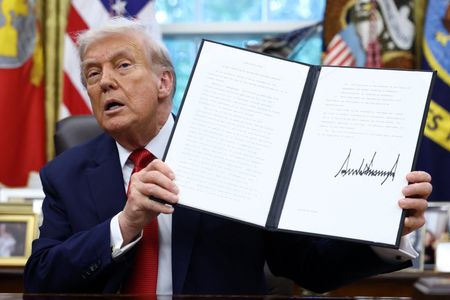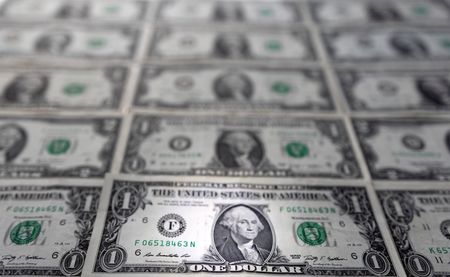By Gregor Stuart Hunter and Andrew Silver
SINGAPORE/SHANGHAI (Reuters) -Shares of European pharmaceutical companies were mostly firm on Friday, while their Asian counterparts fell, after President Donald Trump announced 100% tariffs on branded drugs imported by firms that are not building plants in the U.S.
Markets had braced for tariffs on pharmaceutical products that Trump had long touted, and analysts said the impact on nearly all pharma companies should be limited.
Mostly, they have a U.S. presence and have announced large investments to come. Many Asian companies are focused on generic drugs, meaning tariffs on brands do not affect them.
“A lot of investors were expecting these kinds of tariffs, and it was partly reflected in valuations in the healthcare sector,” said Nabil Milali, a portfolio manager at Edmond de Rothschild Asset Management in Paris.
“There are also some expectations that this will not be the end game of the Trump administration. Probably it’s a starting point to start negotiations with the European and international pharmaceutical companies.”
EUROPEAN SHARES FALL LESS
In Europe, Genmab, Zealand Pharma, UCB and Galderma were down between 1.3% and 2.4%.
Bayer and Novo Nordisk slipped 0.2% and 1%, respectively, while Merck rose 0.4%.
Swiss drugmakers Roche, Novartis and Lonza rose between 0.1% and 1.2%.
Of Asia-Pacific companies with U.S. exposure, Japan’s Sumitomo Pharma closed down 3.5%, while Australia’s CSL hit a six-year low.
Stocks of U.S.-based drugmakers were mostly muted premarket.
Shares of Eli Lilly and Amgen rose 2% and 1%, respectively, while those of Merck and Bristol Myers Squibb were up marginally.
Overall, this is a win for pharma and should not have a material impact, given most companies have announced they are building manufacturing facilities in the U.S., Jefferies analyst Akash Tewari said.
Lorraine Tan, director of equity research for Asia at Morningstar, said the final tariff rate should be lower given the pattern of negotiations so far, but that near-term uncertainty could weigh on share prices.
Other analysts expected a limited impact on Asian drugmakers, as many focus on generic drugs, especially in China and India. Europe and Japan should also get some shelter as a result of trade deals, although industry representatives said this was not yet clear.
The European Union has a trade deal with the U.S. for a 15% tariff on goods, including pharmaceuticals, while Japan has an agreement that its tariff rates will not exceed others including the EU, Tokyo’s trade negotiator said on Friday.
“The market is calling (Trump’s) bluff,” said Ken Peng, head of Asia investment strategy at Citi Wealth.
“We see some Asian pharma names down pretty significantly today, but if people really believe that large swathes of branded pharma will be tariffed at 100%, it wouldn’t be a 3% correction.”
US INVESTMENT RUSH
Around 60% of U.S. pharma imports in 2024 came from the European Union, according to U.N. Comtrade data.
Switzerland, which is not an EU member, was the second-biggest exporter at 9%. Japan exported $2.5 billion of pharmaceutical products to the U.S. in 2024, according to the data.
Many global drugmakers have announced multi-billion-dollar investment plans in the U.S. this year to mitigate the impact of tariffs.
They include AstraZeneca, Roche, Eli Lilly & Co, Johnson & Johnson, Novartis and Sanofi.
It was uncertain how the decision to impose 100% tariffs on imported branded drugs aligns with the existing trade agreement between the European Union and the U.S., Novo Nordisk CEO Mike Doustdar said.
A source at a Taiwan-based pharmaceutical company that makes branded drugs said on condition of anonymity that it could take at least five years to build and certify a new U.S. plant, without taking into account any supply chain or labour shortage issues.
But the source said the biggest losers ultimately would be those who need medicine.
Mark Butler, health minister in Australia, which sold around $1.37 billion in medicines to the U.S. last year, told reporters the government was working to understand the implications of the “unfair, unjustified tariffs after 20 years of free trade”.
Industry players also voiced concern.
“This is another slap in the face and a new low for trade relations with the U.S. If the 15% deal does not apply to pharmaceutical products, it is worthless,” the German chemical lobby, known as VCI, said in a statement.
(Additional reporting by Ozan Ergenay in Gdansk, Sriparna Roy in Bengaluru and Reuters bureaux; Editing by Miyoung Kim, Jamie Freed, Amanda Cooper, Barbara Lewis and Anil D’Silva)

